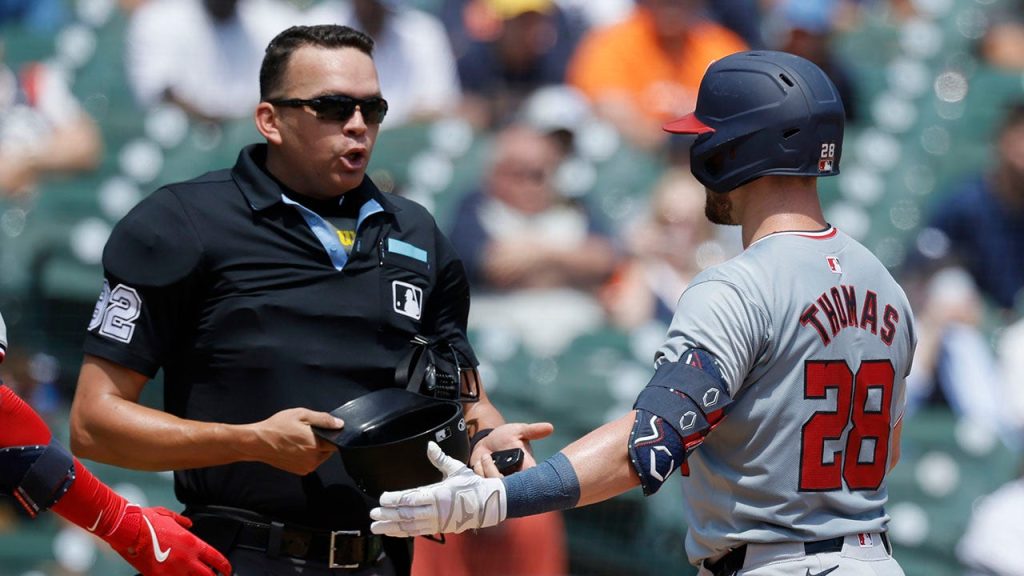Washington Nationals outfielder Lane Thomas was ejected for the first time in his career during the sixth inning of a game against the Detroit Tigers after a questionable strike call by umpire Emil Jimenez. Despite Thomas not saying anything to Jimenez after the call, the umpire promptly threw him out of the game. Fans and commentators expressed outrage at the circumstances that led to the ejection, with video and audio evidence contradicting Jimenez’s claims that Thomas directed inappropriate language at him. This incident marked the 76th ejection of the regular season, as the Nationals’ five-game win streak came to an end with the loss.
The ejection of Lane Thomas sparked controversy among fans and commentators, with many criticizing umpire Emil Jimenez for his quick decision to throw out the player. Former MLB player Kevin Frandsen, who now works as a Nationals announcer, condemned the call during the broadcast, pointing out the lack of evidence supporting Jimenez’s claims. Frandsen labeled the situation as a “bad job” by the umpire, emphasizing that Thomas did not use the inappropriate language that he was accused of. The incident highlighted the frustrations that players and fans often face due to the subjective nature of umpiring decisions in baseball.
Lane Thomas’s ejection during the game against the Detroit Tigers brought attention to the challenges that players face in dealing with umpires. The incident took place during the Nationals’ series finale against the Tigers, ending their five-game win streak. Thomas, who is 28 years old, found himself ejected from a game for the first time in his MLB career, adding to the drama of the situation. The circumstances surrounding the ejection raised questions about the authority of umpires and their ability to make fair and accurate calls during games.
The disagreement between Lane Thomas and umpire Emil Jimenez highlighted the tensions that can arise between players and officials in professional sports. Thomas’s reaction to the questionable strike call and subsequent ejection showcased his frustration with the umpiring decision. Fans and commentators joined in criticizing Jimenez for his handling of the situation, with many pointing out the lack of justification for ejecting Thomas from the game. The incident served as a reminder of the challenges that players face in maintaining composure and professionalism in the face of contentious calls by umpires.
The incident involving Lane Thomas’s ejection also raised concerns about the impact of umpiring decisions on the outcome of games. The Nationals’ loss to the Tigers ended their winning streak and highlighted the potential influence of calls by umpires on game results. Fans and analysts expressed frustration with the inconsistency and subjectivity of umpiring decisions, calling for greater accountability and transparency in officiating. The controversy surrounding Thomas’s ejection added to the ongoing debate about the role of umpires in shaping the outcome of baseball games and the need for clearer guidelines and oversight in officiating.
In conclusion, the ejection of Lane Thomas during the Nationals’ game against the Tigers brought attention to the challenges and controversies surrounding umpiring decisions in baseball. The incident raised questions about the authority of umpires, the impact of their calls on game outcomes, and the frustrations that players and fans experience with subjective officiating. The disagreement between Thomas and Jimenez highlighted the tensions that can arise between players and officials in professional sports, underscoring the need for greater transparency and accountability in umpiring. As the debate over umpiring decisions continues, the incident serves as a reminder of the importance of fair and unbiased officiating in maintaining the integrity of baseball games.


